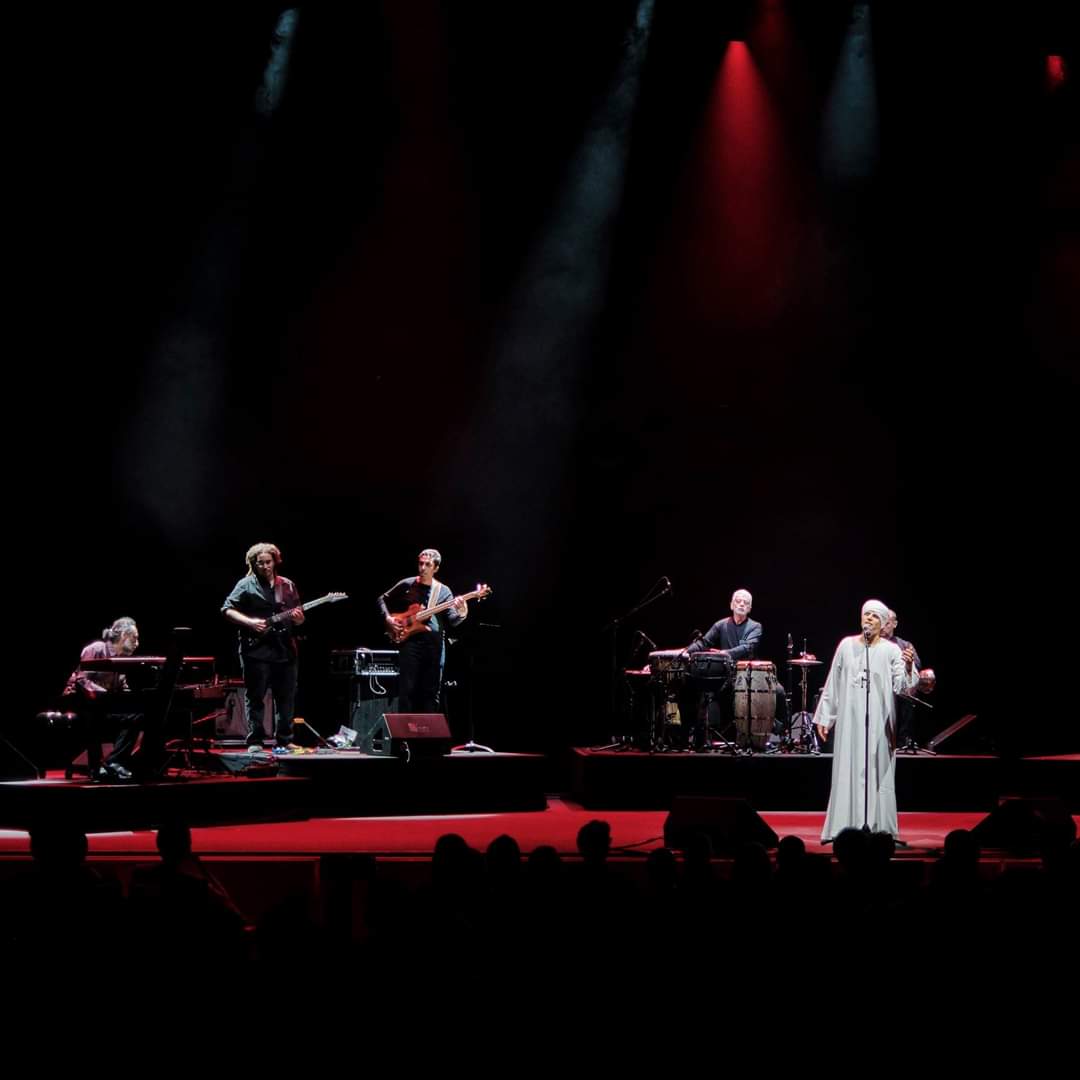
Shahira Kamal excitedly walked into a small venue to perform, a much less frequent occurrence due to the COVID-19 pandemic, when she stopped dead in her tracks.
“Not a single person was wearing a mask,” the 37-year-old singer, visual artist, and art instructor recalls.
She knew it was the venue’s responsibility to ensure that patrons keep their masks on, and the musicians in her group were already masked, but she still felt uneasy, despite the smaller attendance due to the venue’s reduced capacity.
Unfortunately, it was during that concert that several of her friends caught COVID-19, including her sister, and it made her feel conflicted between doing what she loved and maintaining the safety of her loved ones.
“It’s very frustrating; you don’t know whether you should jeopardize your musical career for health reasons or just give in [and perform amidst the health risk],” she explains.
The pandemic’s health risks presented just one of the many challenges faced by Egypt’s live musicians since March 2020, and it wasn’t even the most pressing one.
The uncertainty of the pandemic’s early days
When the first curfew was imposed in Egypt in March 2020, many individuals expected the pandemic to resolve itself rather quickly and felt like they had no reason to worry. In fact, it helped some musicians make the best of a bad situation.
“I thought it was just going to be a couple of months. But when it started taking longer, I decided to use this as a learning curve where I spent time learning music production, expanding my online presence, and practicing my work – it was actually good on the creative side because I wrote several songs during the curfew days,” Kamal recalls.
Kamal notes that her experience is not identical to that of other musicians since she does not rely on music as her main source of income, but merely aspires to have her music career pay for itself rather than financing it out of her own pocket.
“Being dependent on music for income is hard; I’d rather keep doing it as something I’m in love with rather than get stressed because a concert didn’t bring in enough people,” she explains.
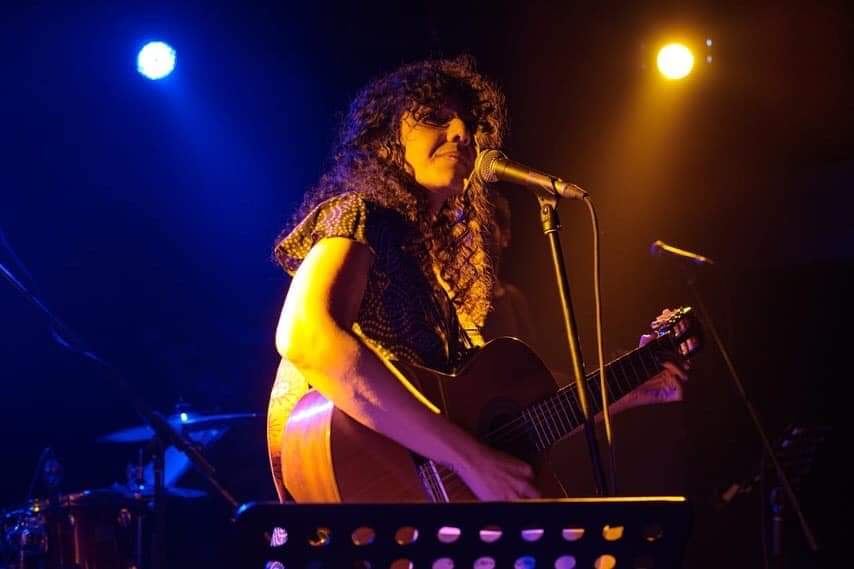
The pandemic’s early days were similar for 36-year-old guitarist Sherif Alaa, who relies on music as his sole source of income. He explains that, at first, he did not mind the prospect of taking a short break from his busy schedule as most of his work involves regional concerts with famous Arab artists and frequent travel can get exhausting.
Like Kamal, he had also thought the pandemic would end quickly so he decided he would make use of the downtime by taking online music courses.
“I started worrying at the beginning of 2021 because when things were getting back to normal in late 2020, we were hit with another COVID-19 wave,” he recalls, explaining that he was worried about the prospect of not traveling for concerts and festivals again.
For 25-year-old guitarist, bassist, and music producer Ziad Hisham, the slowdown that occurred in the early days of the pandemic gave him time to reflect on his ambitions as a musician.
“When you’re working all the time, you don’t have time to stop and reflect on your career goals, but when I had to stay home, I realized that performing live is something I want to do out of enjoyment rather than as a source of income,” he explains.
He then realized that he wanted to focus on music production and sound engineering, which he is already studying in university, along with finalizing the construction of his home studio.
“I wanted to explore other aspects of the industry. So far, it’s been beneficial but not yet financially rewarding. However, I’m looking at it as a transitional phase; I need to give music production the same amount of effort I put in as a guitarist,” he says.
Hisham explains that live performances are not very rewarding unless a band is very commercial, adding: “For underground bands, there’s a lot of work involved, such as going to rehearsals and refreshing the repertoire, and the return is small compared to all that effort.”
Like Kamal and Alaa, he used his time at home to enhance his musical skills, particularly music production. He emphasizes that his objective is not to stop performing live altogether, but to only play music he genuinely enjoys.
Kamal and Alaa also had to find ways to bring in extra income with the reduced live performances, with Kamal taking on copywriting jobs and currently seeking a full-time job due to the pandemic’s effect on her creative work as a whole.
Alaa had to take similar steps by offering online music lessons and scouting music recording opportunities. “I was trying to slow down the reduction in my savings, but [the work taken on during 2020] couldn’t even be used to pay my rent,” he explains.
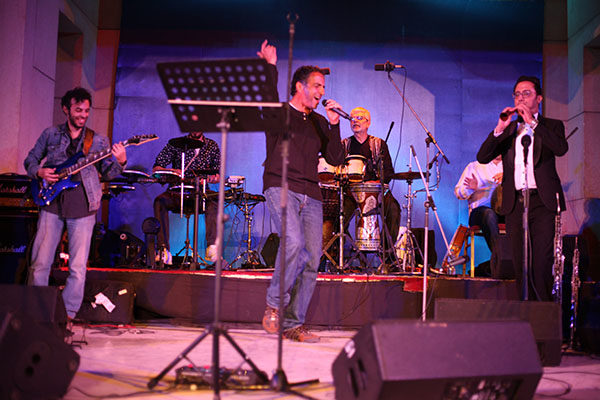
Many musicians resorted to posting music videos on social media to enhance their online presence and exercise their creative muscles during the live music drought. While most did this from home, larger bands such as Cairokee and Massar Egbari went as far as hosting full online concerts.
Pandemic-driven music preferences
Even after the gradual reopening of venues and the attempts to return to normal, the pandemic seems to have changed the music preferences of patrons and venues alike.
Kamal, who plays original music, believes it has become harder to attract people to new original content.
“The willingness to attend original music performances had already decreased pre-COVID-19, in my case at least, but it’s more so now,” she says.
She argues that because venues have also suffered from the pandemic, they are more likely to host artists who are guaranteed to bring a crowd (and therefore, revenue), such as well-established performers or cover artists who perform familiar music, rather than artists who offer new or more experimental styles of music.
“When I started performing live again [after the reopening of venues], it was like going back three or four years in my music career. People were less willing to attend and weren’t as financially capable or emotionally ready to attend,” she explains.
She believes an individual’s decision to attend a concert relies on calculating whether a band is worth seeing and whether a concert is worth attending due to the health risk.
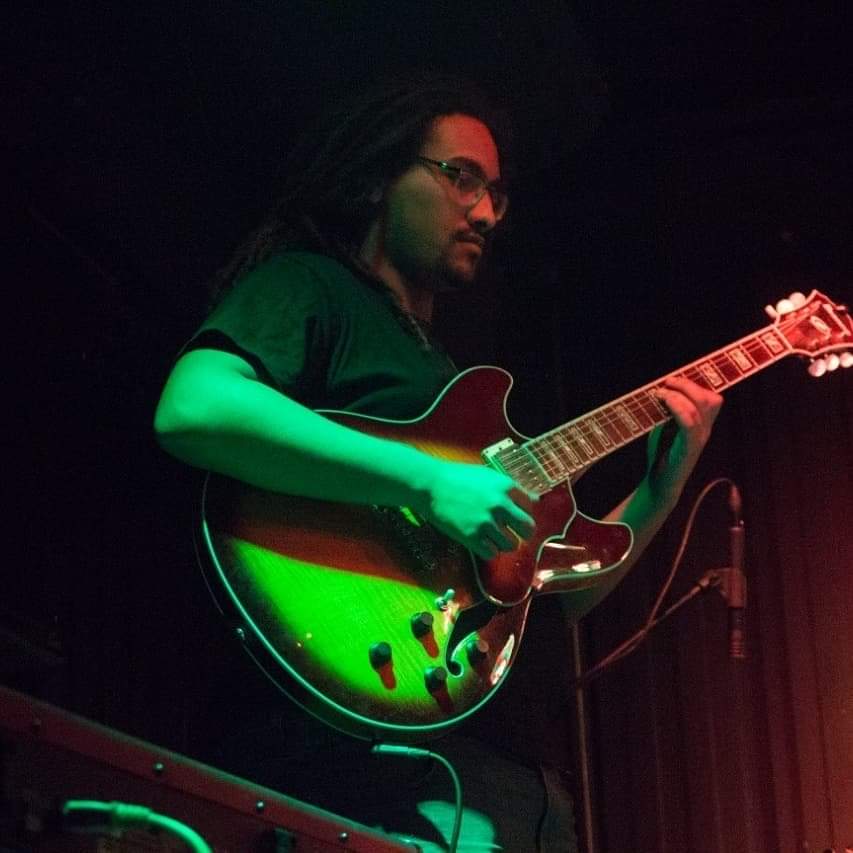
It is worth noting that some venues in Egypt have been criticized for hosting large indoor events during the pandemic, particularly before the nation’s widespread vaccination campaign, but most underground musicians did not benefit from these seemingly successful events.
According to Hisham, several venues maximized their profitability after reopening by paying lesser-known musicians less money while simultaneously charging customers more. While some musicians have been able to dispute such reductions in fees, others haven’t been so lucky, but are unable to say no to the work because they have no other options.
“It’s frustrating because the pandemic affected musicians pretty hard; some even had to sell their instruments. It’s understandable that venues have to prioritize their business and compensate for the losses that occurred during their shutdown, but not at the expense of the musicians,” he notes.
However, another factor might also be at play, according to Alaa. He noticed a reduced demand for live performances in Egypt as a whole, despite playing in a popular cover band.
“We used to perform at weddings and corporate events, but the demand has decreased; perhaps because the pandemic made people more financially conscious. More people would rather hire a DJ, for example, because it’ll cost them less,” he explains.
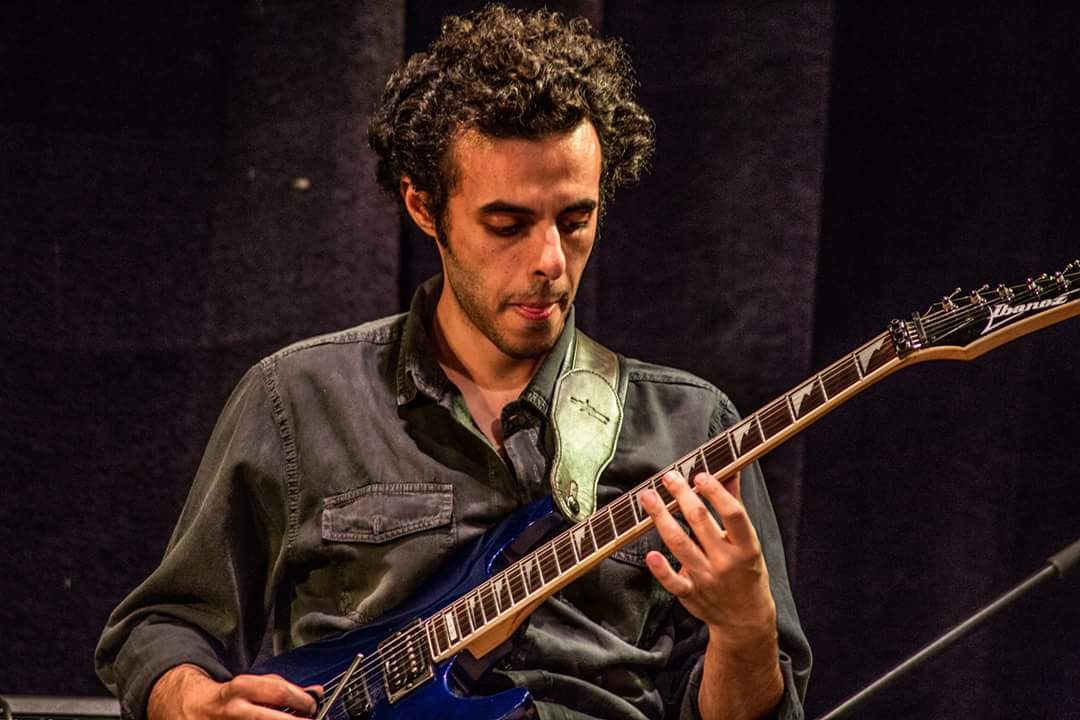
The cost of hiring a live band may be higher due to several factors, such as musical equipment and sound engineers, in addition to the band’s fees.
Most musicians now have to rely on online presence for exposure, compared to the opportunities they may have had in the past.
“[Local and regional] music festivals would ‘refresh’ the music scene every year and they would target all kinds of musicians,” Kamal explains.
The road ahead for live performers
Despite the many challenges that affected their field, Egypt’s musicians continue to push through and emphasize that the work is always done from a place of love.
“The pandemic has been incredibly tough for musicians everywhere, and I’m thankful to be one of the lucky ones. Even when my work gets stressful, I love what I do,” Alaa explains.
His commercial work has gradually started to return; at the time of his interview with Egyptian Streets, he was traveling for his first regional concert since the pandemic began.
Hisham continues to play live when it’s music that he enjoys performing, but he’s grateful that he has had the time to reflect on his career goals and invest in his music production career, and he has managed to produce several singles during the pandemic.
Kamal also strives to keep herself on the music landscape’s map and managed to release an EP album at the end of 2020, which she funded by organizing an exhibition of her artwork.
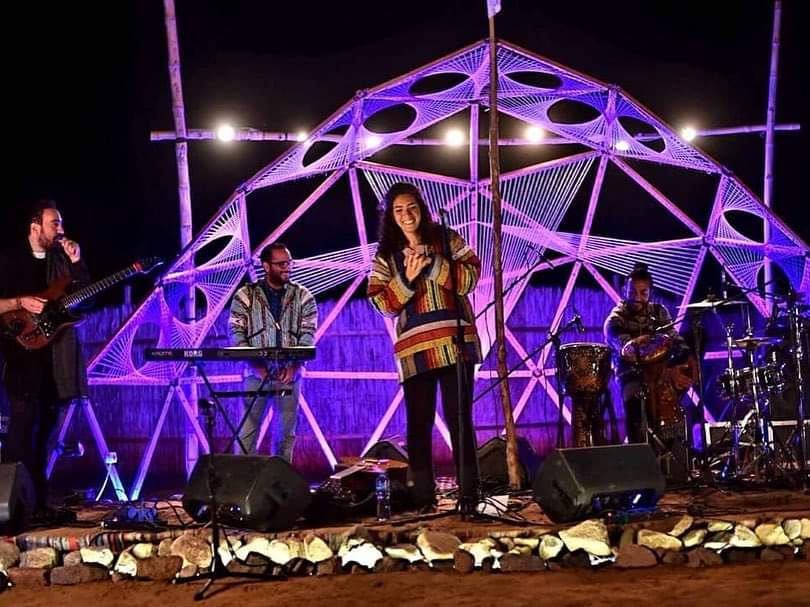
However, she continues to remind herself that she doesn’t treat her music career like a typical job. “At the end of the day, we are in a creative industry and doing something we love and enjoy sharing with others,” she says. “I can’t stop making music; it’s not something you can decide because it’s not a job…it’s a freedom of expression.”
Subscribe to the Egyptian Streets’ weekly newsletter! Catch up on the latest news, arts & culture headlines, exclusive features and more stories that matter, delivered straight to your inbox by clicking here.
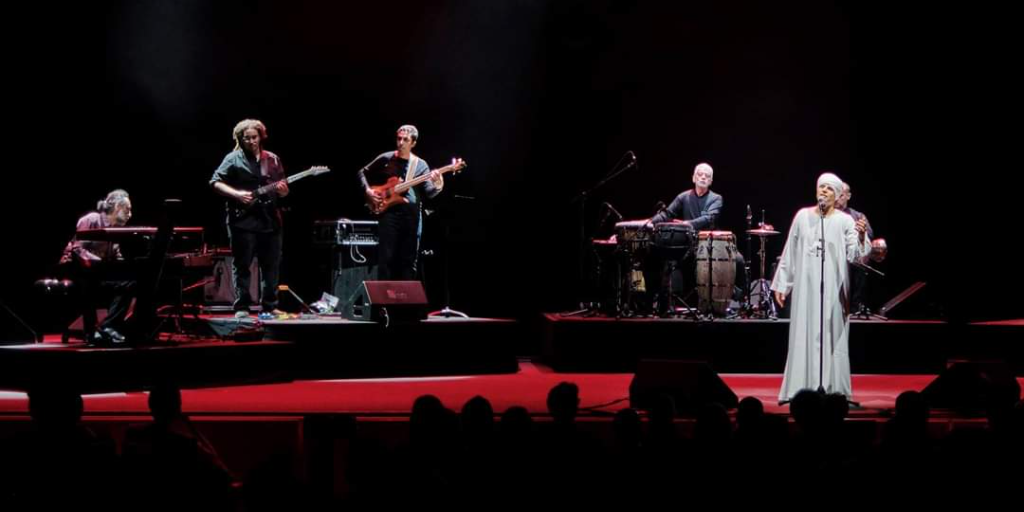





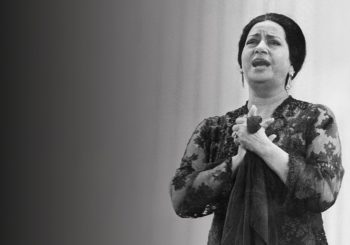
Comments (9)
[…] From On Stage to On-Display: The Pandemic’s Impact on Egypt’s Reside Musicians […]
[…] المصدر by [author_name] كما تَجْدَرُ الأشارة بأن الموضوع الأصلي قد […]